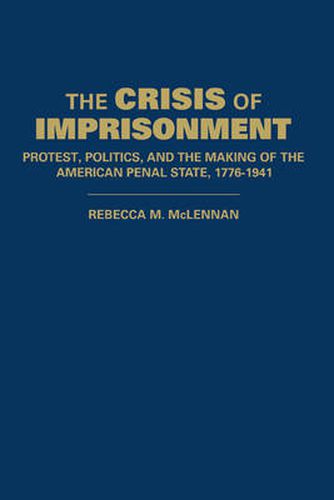Readings Newsletter
Become a Readings Member to make your shopping experience even easier.
Sign in or sign up for free!
You’re not far away from qualifying for FREE standard shipping within Australia
You’ve qualified for FREE standard shipping within Australia
The cart is loading…






America’s prison-based system of punishment has not always enjoyed the widespread political and moral legitimacy it has today. In this groundbreaking reinterpretation of penal history, Rebecca McLennan covers the periods of deep instability, popular protest, and political crisis that characterized early American prisons. She details the debates surrounding prison reform, including the limits of state power, the influence of market forces, the role of unfree labor, and the ‘just deserts’ of wrongdoers. McLennan also explores the system that existed between the War of 1812 and the Civil War, where private companies relied on prisoners for labor. Finally, she discusses the rehabilitation model that has primarily characterized the penal system in the twentieth century. Unearthing fresh evidence from prison and state archives, McLennan shows how, in each of three distinct periods of crisis, widespread dissent culminated in the dismantling of old systems of imprisonment.
$9.00 standard shipping within Australia
FREE standard shipping within Australia for orders over $100.00
Express & International shipping calculated at checkout
America’s prison-based system of punishment has not always enjoyed the widespread political and moral legitimacy it has today. In this groundbreaking reinterpretation of penal history, Rebecca McLennan covers the periods of deep instability, popular protest, and political crisis that characterized early American prisons. She details the debates surrounding prison reform, including the limits of state power, the influence of market forces, the role of unfree labor, and the ‘just deserts’ of wrongdoers. McLennan also explores the system that existed between the War of 1812 and the Civil War, where private companies relied on prisoners for labor. Finally, she discusses the rehabilitation model that has primarily characterized the penal system in the twentieth century. Unearthing fresh evidence from prison and state archives, McLennan shows how, in each of three distinct periods of crisis, widespread dissent culminated in the dismantling of old systems of imprisonment.